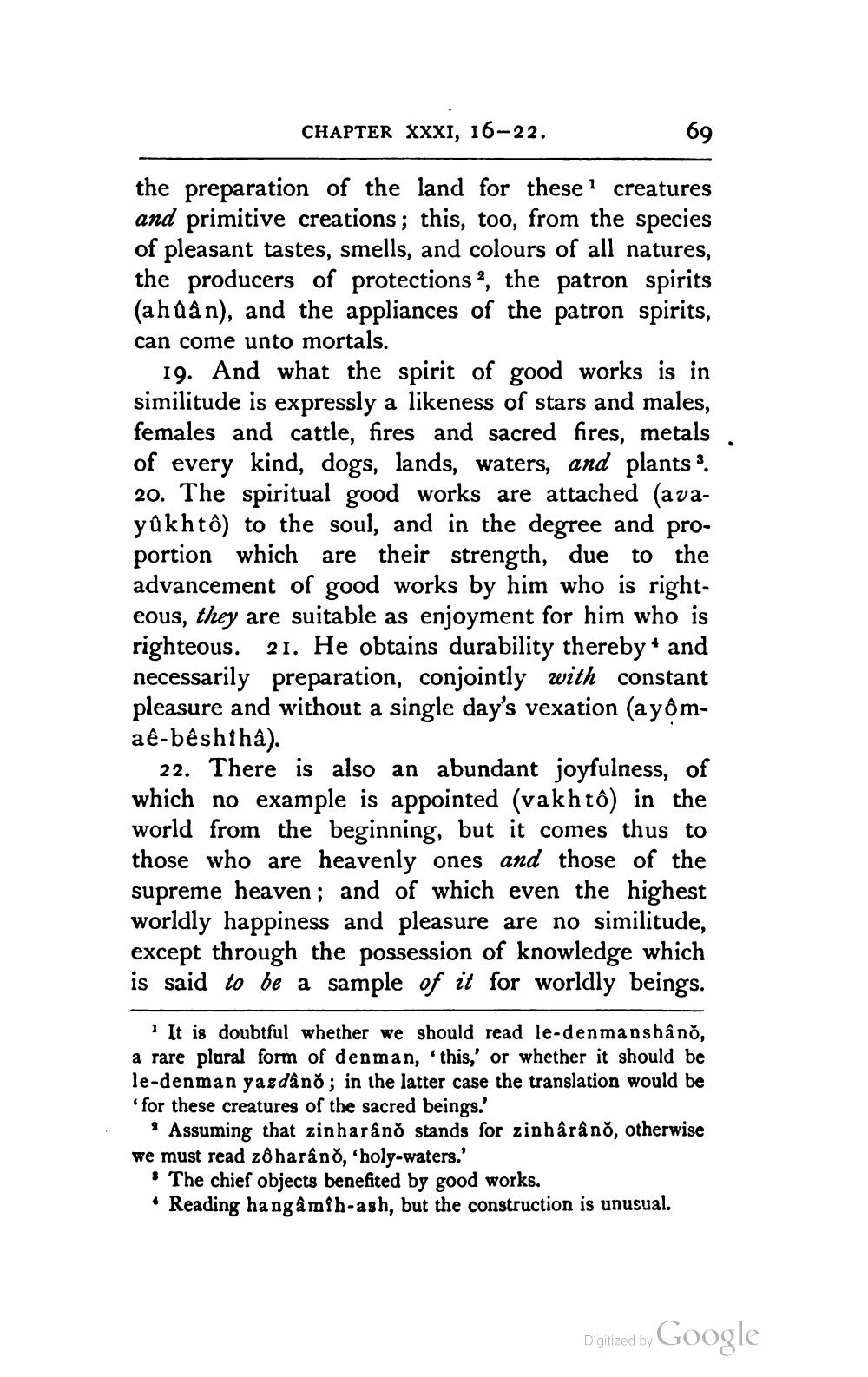________________
CHAPTER XXXI, 16-22.
69
the preparation of the land for these 1 creatures and primitive creations; this, too, from the species of pleasant tastes, smells, and colours of all natures, the producers of protections, the patron spirits (ahůân), and the appliances of the patron spirits, can come unto mortals.
19. And what the spirit of good works is in similitude is expressly a likeness of stars and males, females and cattle, fires and sacred fires, metals of every kind, dogs, lands, waters, and plants : 20. The spiritual good works are attached (avayûk htô) to the soul, and in the degree and proportion which are their strength, due to the advancement of good works by him who is rightcous, they are suitable as enjoyment for him who is righteous. 21. He obtains durability thereby - and necessarily preparation, conjointly with constant pleasure and without a single day's vexation (ayômae-bêshthâ).
22. There is also an abundant joyfulness, of which no example is appointed (vakh tô) in the world from the beginning, but it comes thus to those who are heavenly ones and those of the supreme heaven; and of which even the highest worldly happiness and pleasure are no similitude, except through the possession of knowledge which is said to be a sample of it for worldly beings.
'It is doubtful whether we should read le-denmanshână, a rare plural form of denman, this,' or whether it should be le-denman yasda no; in the latter case the translation would be 'for these creatures of the sacred beings.'
9 Assuming that zinharânð stands for zin hârânõ, otherwise we must read zô haran, 'holy-waters.'
* The chief objects benefited by good works. • Reading hangâmih-ash, but the construction is unusual.
Digitized by Google




